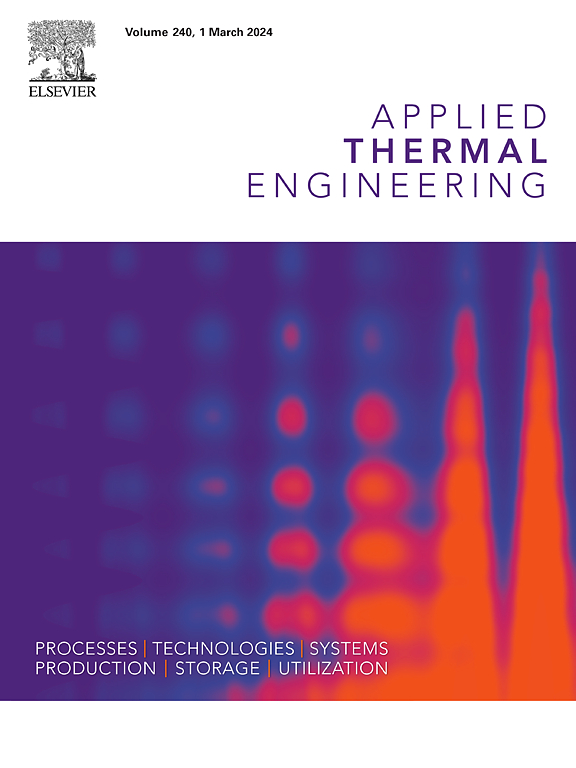寒冷地区隧道GHEs换热蓄热性能试验研究
IF 6.9
2区 工程技术
Q2 ENERGY & FUELS
引用次数: 0
摘要
严寒地区隧道入口冻害严重威胁着隧道的安全和运行可靠性。为了解决这一挑战,本研究调查了隧道衬砌地面热交换器(GHEs)用于主动防冻的使用。在实验室建立了地下换热器试验平台,系统分析了不同运行和环境条件下,包括进口温度、流速、管道布置、环境温度、通风速度等条件下的地下换热器换热性能和围岩保热性能。结果表明,提高进口温度和流速可以改善换热率,但由于非线性行为,提高温度和流速的效果会减弱。与隧道轴线对齐的管道配置可使热交换率提高约7.7%。环境温度每降低5℃,热损失增加约10%,热保持下降10%,在- 8℃至- 18℃范围内尤为明显。通风速度影响显著;从0 m/s增加到1 m/s可以显著改变热损失和热保持。在低入口温度和大流量条件下,系统对通风变化的敏感性较高。这些研究结果为低温条件下隧道GHE系统的工程应用和优化提供了指导。本文章由计算机程序翻译,如有差异,请以英文原文为准。
Experimental study on heat transfer and thermal storage performance of tunnel GHEs in cold regions
Frost damage at tunnel entrances in severely cold regions presents a major threat to tunnel safety and operational reliability. To address this challenge, this study investigates the use of tunnel lining ground heat exchangers (GHEs) for active frost prevention. A test platform for ground heat exchangers was established in laboratory, enabling a systematic analysis of GHE heat transfer performance and surrounding rock heat retention under varying operational and environmental conditions, including inlet temperature, flow velocity, pipe arrangement, ambient temperature, and ventilation speed. Results indicate that raising the inlet temperature and flow velocity improves the heat exchange rate, although the improvement effect weakens at higher levels due to nonlinear behavior. A pipeline configuration aligned with the tunnel axis increases the heat exchange rate by about 7.7 %. A 5 °C decrease in ambient temperature results in roughly a 10 % increase in heat loss and a 10 % decline in thermal retention, especially pronounced in the −8 °C to −18 °C range. Ventilation velocity has a pronounced impact; increasing it from 0 m/s to 1 m/s significantly alters both heat loss and thermal retention. The system shows greater sensitivity to ventilation variation under conditions of low inlet temperature and high flow rate. These findings offer guidance for the engineering application and optimization of GHE systems in tunnels situated in cold climates.
求助全文
通过发布文献求助,成功后即可免费获取论文全文。
去求助
来源期刊

Applied Thermal Engineering
工程技术-工程:机械
CiteScore
11.30
自引率
15.60%
发文量
1474
审稿时长
57 days
期刊介绍:
Applied Thermal Engineering disseminates novel research related to the design, development and demonstration of components, devices, equipment, technologies and systems involving thermal processes for the production, storage, utilization and conservation of energy, with a focus on engineering application.
The journal publishes high-quality and high-impact Original Research Articles, Review Articles, Short Communications and Letters to the Editor on cutting-edge innovations in research, and recent advances or issues of interest to the thermal engineering community.
 求助内容:
求助内容: 应助结果提醒方式:
应助结果提醒方式:


